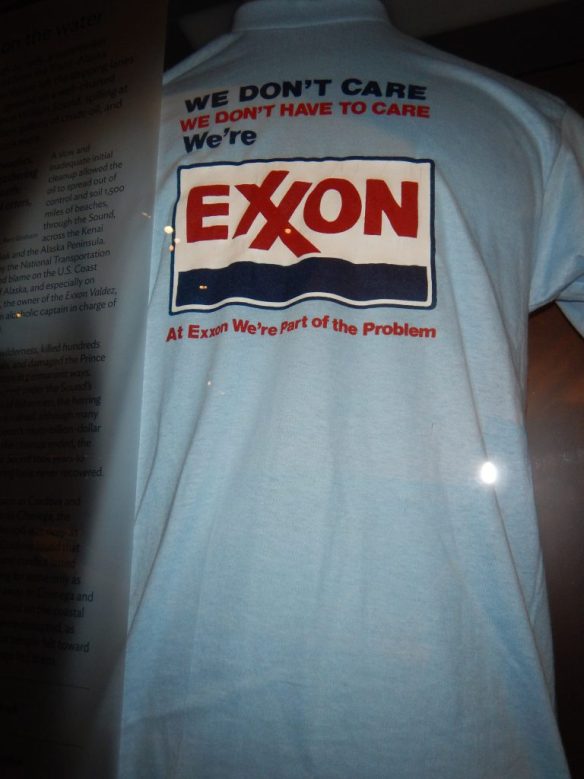
New Orleans My nominee for our family’s best vacation ever was a camping trip, some twenty years ago, to Alaska. I had cashed out 100,000 frequent flyer miles on Continental Airlines for four tickets to Anchorage. These were the days before there were extra fees for baggage, so we were handed thirteen tags for everything from ice chests to tents to duffle bags full of fishing and other gear. We rented a Ford Explorer and stuffed everything in the back and up on the rack under the huge canvass ground cover that has been one of our camping staples for decades. We tied everything down tightly, and we were off to Wrangell, to Denali, down the Kenai Peninsula, and points in between.
We had to stop on the road at times to let the huge moose cross, like they were dawdling school children avoiding the opening bell. We watched scores of eagles fishing on the Homer spit. We caught salmon in Valdez Bay and cooked them in foil after ten at night for dinner in the last shadows of the midnight sun. Alaska as the 49th state also marked the 50th state in the union I had visited, so it had long been in my sights at the time, and the experiences there pushed the entire visit to the top of my list.

This trip was different, though almost as special, because now I was working and had crossed the line from the fan club in the stands onto the playing field where I could make a small contribution. By the time I jumped in a cab at 3:15 in the morning for a 5:00 AM milk-run flight across three time zones to home, I was excited that we might be able to make something important happen which would bring balance to my own personal payback ledger as well.
One of the things that has always interested me personally about Alaska has been its relationship to oil. I was raised in the oil field of the western United States, and it is what plopped me in Louisiana in the first place. Even as a short-timer, it was hard to ignore the changes and economic challenges facing Alaska these days. Alaskans with over one-calendar year’s residence all receive a dividend from the constitutionally established Permanent Fund, ranging from a low of about $800 per year up to more than $1500. Talking to several of our members who had worked for the Fund, the amount is based largely on average oil revenues for a 5-year period, so the full impact of the current low prices hasn’t really hit the state’s residents.

With 80% of more of the state’s revenue coming from oil, the state government endured a historic five special sessions by mid-2016 and still didn’t pass the Governor’s budget. Talking to one former aide to the governor, to balance the budget oil prices per barrel need to be between $80 and $100. Right now, the price of oil is still hovering near half of that amount.
Alaska is one of those places like Nevada where almost everyone has a story about how they ended up here, and relatively few were really “from” Alaska. I asked everyone, and heard a lot of stories, but all of them add up to a special decision individuals made to come to the “Last Frontier,” as their license plates say. The state is ruby red for the Republicans, but that’s not simple either. For a coming radio show, I got a short course in the libertarian streak that runs deep in the state. For years for example marijuana could be legally cultivated in your own home for your own use and in 2014 the state passed a referendum making marijuana legal for recreational use. Beginning next year, there will be a budding industry there, similar to what Colorado has done. The governor was elected as an independent as was one the senators when she failed to win the Republican nomination. There weren’t many Hillary signs in Juneau, but there weren’t many Trump signs either, though he is expected to win the state.

The state may be large, but the population is small, which actually makes life at least in a capitol city like Juneau somewhat more civil. We might be building an organization that would be pressuring the state and some of its institutions for change, in this instance for mental health consumers, but that didn’t mean that we weren’t welcome in the governor’s and mayor’s office to offer progress reports on our work or weren’t greeted warmly on the street by legislative aides and members of the Mental Health Trust. Like Arkansas in the 1970’s, there aren’t many degrees of separation in Alaska in the 21st century, which will make watching closely how the state meets its challenges something that might teach the lower 48 some lessons as well.

